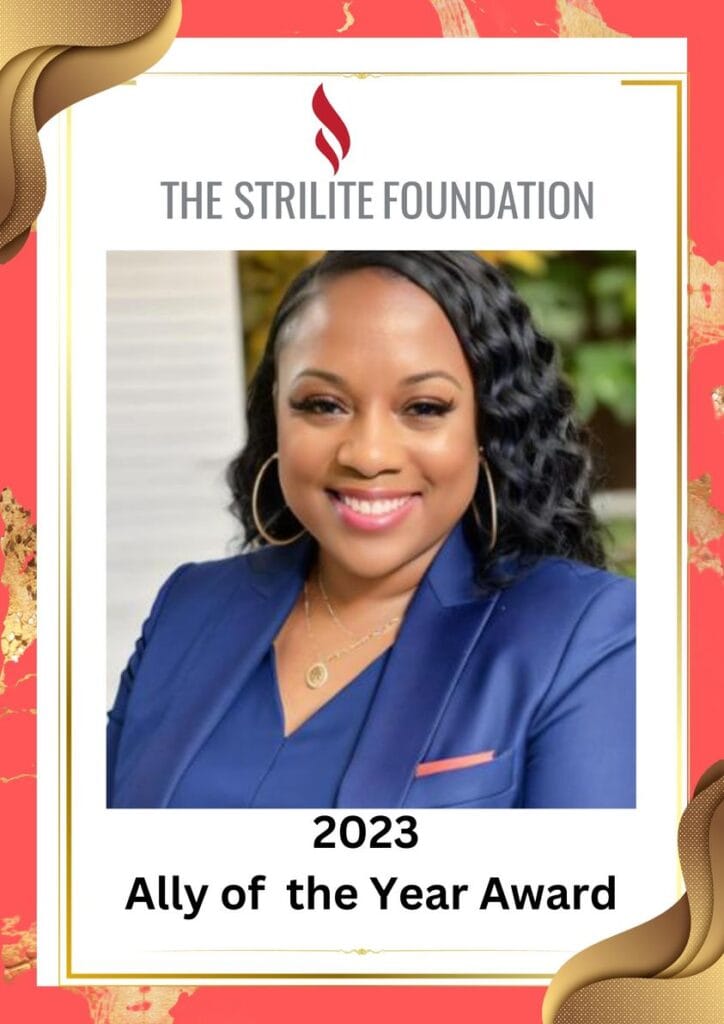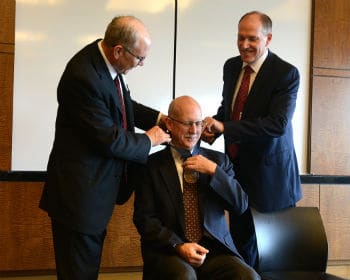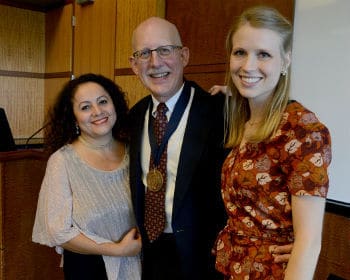Dr. Shashank Kraleti, DFPM Chair and Director of the Primary Care and Population Health Service Line, is announcing new structure to the DFPM, including new offices and directors to lead the way. Dr. Kraleti himself has acquired another title, that of Senior Vice-President for UAMS Health. New offices, positions, and leadership are outlined below, with more details to come.
Vice-Chair for Community Health and Engagement
Dr. Julea Garner
Dr. Garner is the inaugural Program Director of the Baptist Health-UAMS Family Medicine residency program. Her experience in Family Medicine education goes back to the early 1990s, and she has held multiple roles in the American Academy of Family Physicians. Dr. Garner was honored with the Ben Saltzman MD Professorship in Rural Family Medicine and was in private practice in Hardy, Arkansas, for almost 20 years.
Vice-Chair for Research and Faculty Affairs
Nikki Edge PhD
Dr. Edge has been on the faculty of the DFPM Research and Evaluation Division (RED) since 2011 and is now the Director of RED. Her research focuses on factors that place children at risk for poor social and emotional outcomes. She has held leadership positions in grant projects that have brought millions of dollars to UAMS and better health to children and adults around Arkansas. She has dozens of peer-reviewed publications and extensive experience in promotion and tenure processes.
Vice-Chair and Assistant Service Line Director for Clinical Operations
Dr. Scott Dickson
Dr. Dickson has been Program Director of the UAMS Northeast Family Medicine residency program since 2009. He graduated from the Association of Family Medicine Residency Directors’ National Institute for Program Director Development Fellowship in 2008 and has won several teaching awards. In 2018, he was the recipient of the Arkansas Blue Cross and Blue Shield, George K. Mitchell MD Endowed Chair in Primary Care. He has been significantly involved with the Arkansas Chapter of the American Academy of Family Physicians by serving on the Board in several officer roles.
Assistant Service Line Director for Clinical Quality
Dr. Tabasum Imran
Dr. Imran began work at UAMS West in 2011. Since 2014, she has been the Associate Program Director and Medical Director. As an Epic Super User and trainer for end users, she has contributed significantly working with other Epic team members at UAMS to train clinic employees and physicians in the Epic healthcare record system. Her distinctions in quality improvement initiatives are numerous, as are her wide-ranging achievements in patient safety. Her leadership and participation in grant-funded projects and activities pertaining to value-based participation have been impressive, and she has won awards for teaching and scholarship.
Director, DFPM Division of Medical Student Education
Dr. David Kelley
Dr. Kelley joined the DFPM faculty in 2022, but he is not a newcomer to medical education. For eight years, he was Director of the Clerkship Program at the Department of Family and Preventive Medicine at the University of Oklahoma Health Sciences Center. He has developed curricula and mentored Family Medicine residents, medical students, and other learners. Dr. Kelley has won multiple teaching awards and has received superior evaluations not only from learners but also from patients.
Director, DFPM Office of Communication and Departmental Relations
Diane Jarrett EdD, MA
Dr. Jarrett joined the UAMS Little Rock Family Medicine residency program in 2008. After 15 years of serving as an educator, she has transitioned to being a communicator for the DFPM statewide. Her doctorate is in higher education, and her master’s degree is in journalism/mass communications. In 2023, she was named as the AAFP Fellow for the History of Family Medicine, and she also won the UAMS Dr. Edith Irby Jones Excellence in Diversity and Inclusion Award.
Director, DFPM Office of Digital Health
Dr. Stephen Foster
Dr. Foster is an Assistant Professor at the UAMS Northeast Regional Campus, an ambulatory physician builder in clinical informatics, and an ambulatory quality officer in the Primary Care and Population Health Service Line. His awards and honors include a Digital Health Fellowship from Doximity, an Emerging Leaders Fellowship from the Society of Teachers of Family Medicine, and acceptance to the Implementation Sciences Scholars Program from the UAMS Translational Research Institute. He holds many certifications in Epic Systems.
Co-Directors, DFPM Office of Leadership and Professional Development
Dr. Julea Garner and Dr. Diane Jarrett
Their biosketches are above.
Director, DFPM Office of Wellness
Kathy Emans LCSW
Ms. Emans is a licensed clinical social worker with more than 30 years of experience in working with mental health and substance use issues. She has a master’s degree in social work from the Indiana University School of Social Work.






